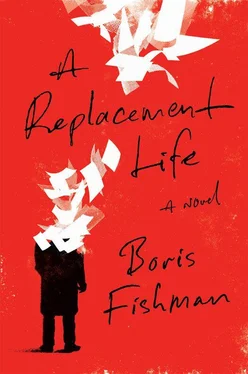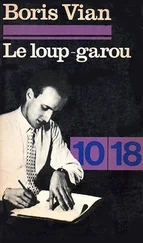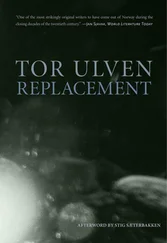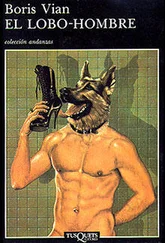Slava considered the possibility of starting with his grandfather. That day at the Vienna synagogue, he — the real grandfather — had snatched Slava’s hand and slipped away from the group, which had been made to stand waiting for the end of services by their guide, an Israeli in a leather jacket. Slava’s insides knitted in worry. His mother and father had not come on the tour, grateful they didn’t have to. It was only Grandfather and Slava, and they were breaking the rules.
Holding his hand, Grandfather leaned an ear to the door of the synagogue, on the other side of which a group was praying. “Woo-woo-woo,” Grandfather mimicked, and shrugged. Then he slid his hand inside the handle, as large as a torso, and carefully deposited his nose inside the opening. Slava peeked from behind his trousers, which smelled of wool and naphthalene. Inside, in a room as ornate as a Turkish palace, men lurched epileptically, humming like an apiary.
Grandfather looked down at Slava. “Woo-woo-woo,” he said again, and turned his finger into his temple. Crazy. “Boy,” he said with a formality that made Slava’s insides twist again. “Of this, we’ve seen all we need to. Time for ice cream. The vanilla one they tie up like a sausage.”
“But we’re not allowed to leave,” Slava whispered.
“We, Slavik”—Grandfather leaned down, placing the tip of his finger on his nose—“can do whatever we want.”
Slava considered Bachman again. No, Rabbi, I won’t be able to provide you with a minyan from the grandfathers, the real or the fake. Their children, perhaps. Their grandchildren, quite possibly. But this — candles, mongreling — was as close as the grandfathers could come. A little foreplay, a forshpeis . Slava was overcome by a desire to hear Grandfather’s voice, the real grandfather’s, as if, like Grandmother, he was going to die and Slava would no longer be able to.
“I’ll talk to him about the minyan,” Slava said. “I should go now.”
“I’d like to see you here again,” the rabbi said.
Slava smiled politely and turned to leave. Halfway to the door, he looked back. “Tell me,” he said. “When is the mourning over after a death?”
“The shiva?” Bachman said. “There isn’t anything else. Judaism’s not big on stretching out mourning. You mourn hard, so to speak, but then you let go. You light a candle on the yahrzeit, but otherwise you make your way back to life. Why do you ask?”
“You’re supposed to not think of the person?”
“Of course you can think of the person. You can think of the person whenever you want. It’s only the rituals that are finished.”
Slava considered this. It seemed all right. He thanked the rabbi and started again for the door, his steps echoing on the cold churchy stone.
When Slava thrust open the door, he discovered waiting for him, draped over the stair railing and illuminated from behind by the sun like an arthritic god, Israel Abramson. He looked pink, like a baby.
“Privet, mal’chik ,” Israel said. Hello, boy. “You took your time in there. What were you discussing, the soul of man? I thought you might want to walk together, help me down these goddamn stairs. They build stairs like they’re sitting in heaven.”
Slava blinked, adjusting his eyes after the interior’s dimness. Maybe Slava was imagining him.
Then Rabbi Bachman opened the door of the synagogue and emerged into the sunlight.
“Hava-yoo, Ravvin!” Israel shouted, raking the air with his paw.
Slava felt sweat on his back.
“Israel,” the rabbi acknowledged.
Slava was about to speak when Israel pointed at him and spoke first. Slava closed his eyes as if to shield himself from the blow. But what Israel shouted was: “Grensun!”
You, world, always make new mysteries.
Rabbi Bachman smiled. “I know! We spoke. He’s going to help me with a project. Maybe.” The rabbi spoke with the extra volume with which Americans speak to those who don’t speak English.
Slava turned to Israel. “He says—” he started in Russian.
“Nais, veree nais!” Israel answered with the Soviet immigrant’s indifference to comprehension as a primary objective of dialogue. “Bai-bai, Ravvin!” He twirled his crooked fingers.
Rabbi Bachman returned inside, and Israel stuffed his arm into the crook of Slava’s. “See these, mal’chik ?” He pointed to the medals on his uniform. “Reconnaissance, ’44 to ’45. I had you as far back as Eighty-Sixth Street. Big deal you are — you can barely cross the street. My heart was in my feet, looking at you back there. Let’s go.”
“Why did you tell him I was your grandson?” Slava said.
“What are you, embarrassed?”
“No,” Slava said. “No.”
“So why are we talking about this, let’s go.”
Slava took the steps at Israel’s stride. Up close, it was worse. Each step cost him something dear. At home, he had looked sturdy, nearly athletic, in his gym trousers, but the arm that leaned on Slava now was flabby as dough, the left hand trembling in an eternal so-so. Ahead of them, the descending disk of the sun spread a tired lemon glow.
“Let’s take a break,” Slava said when they had reached the bottom of the stairs. “Let’s sit down.”
“You can’t sit down on concrete, you’ll catch cold,” Israel said.
“It’s a hundred and fifty degrees,” Slava said. “Sit down and rest.”
“If I sit down here, I’ll never get up,” he said. “Look how low to the ground.”
“Can you lean against the railing? I am going to sit down.”
“What are you, a pensioner? Let’s go.”
“For just a moment,” Slava said. He made sure that Israel was attached to the railing and lowered himself. The step was inches from the pavement. Was it simply performing the ritual of sitting on a low place in honor of the deceased that mattered, or were you also supposed to feel something? Slava waited, but he didn’t feel anything. The people who covered mirrors, sat on low stools, lit candles, how did they come to feel what they felt? Did you have to be born into it? What was the trick?
There was a terrible rumble next to him. Israel had deposited himself a step above. “If we’re resting, we’re resting,” he said.
“It doesn’t bother you to go in there?” Slava said.
Israel blew his nose, a thumb at each nostril. “Where else would I go if I want to sing a song for my wife? The mosque on Eighty-Sixth Street? Masjid Shmashid? No, I am a Jew. I don’t go up there, you think that will make him come back? I take what I can.”
“Pick and choose,” Slava said sourly.
“I guess so,” Israel said. “Except I didn’t choose for my son to become a fanatic and run off to Israel. All the same, I’d rather he was happy without me than unhappy with. Do you think he might have done that because he was unhappy? Unhappy with me and my wife?”
Slava turned to look at Israel. The old man’s face was pinched at the thought. Slava waved him away. “They have studies about this sort of thing,” he lied. “I mean atheists who come and convert. It’s other factors. It’s not family. Weren’t you his family in the Soviet Union?”
“Maybe it’s something in this place,” he said weakly. He looked on the verge of tears.
“Maybe,” Slava said.
Israel nodded, the forehead folded. Slava withdrew the white envelope from his jeans pocket. Palmed by many hands, it was acquiring a foxed edge. He extended it to Israel.
“What’s this?”
“There was a misunderstanding,” Slava said. “I don’t know how much it was, but two-fifty to start.”
“It was two-fifty.”
“Then we’re square.”
“But who gives you for the work?”
“I’ve been given.” Slava rose and tucked the envelope into the pocket of Israel’s uniform. “Let’s go. I’ve got a long night ahead.”
Читать дальше











